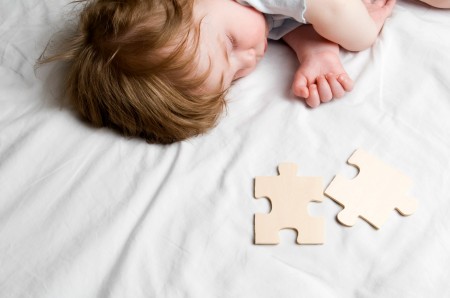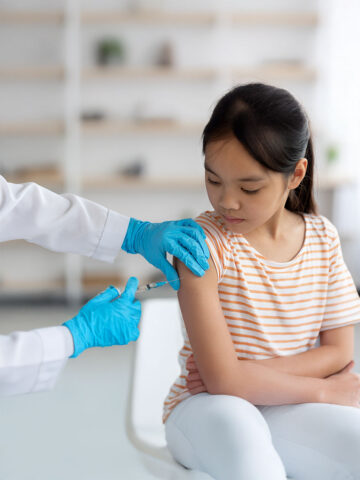 Autism Spectrum Disorder remains a mysterious but prevalent disorder that now is believed to affect one in 88 children and one in 54 boys in the United States. It’s also the fastest-growing serious developmental disability in the country.
Autism Spectrum Disorder remains a mysterious but prevalent disorder that now is believed to affect one in 88 children and one in 54 boys in the United States. It’s also the fastest-growing serious developmental disability in the country.
There is no medical detection or cure for autism. However, learning as much as possible about the condition helps families understand and better assist their child with autism, says Dr. Joseph H. Donnelly, a CHOC neurologist and the medical director of The Center for Autism & Neurodevelopmental Disorders.
“The most obvious signs of autism emerge between 12 and 18 months of age,” says Dr. Donnelly.
Here are some signs that may indicate your child is at risk for an autism spectrum disorder:
- No big smiles or other warm, joyful expressions by 6 months of age or older
- No back-and-forth sharing of sounds, smiles or other facial expressions by 9 months
- No babbling by 12 months
- No back-and-forth gestures such as pointing, showing, reaching or waving by 12 months
- No words by 16 months
- No meaningful, two-word phrases (not including imitating or repeating) by 24 months
- Any loss of speech, babbling or social skills at any age
Parents of children showing these symptoms should ask their pediatrician for an immediate evaluation, advises Dr. Donnelly.
It’s a myth that children with autism lack strengths, says Dr. Donnelly. In fact, people with autism can have significant strengths and sometimes perform better, or are more capable, in certain areas than typical children.
“Never assume a child cannot do something. Try everything and discover a child’s strengths, weaknesses and learning style.” he says. “Children with autism can have learning disabilities like a typical child and this needs to be addressed the same way as with any child.”
Here are some other common myths about autism:
- All children with autism don’t speak.
- Children with autism all have an intellectual disability.
- Autism is an emotional disorder.
- People with autism don’t exhibit emotions.
- People with autism can’t lead a meaningful life.
Common medical problems associated with autism include seizures, gastrointestinal problems, allergies and sleep difficulties, Dr. Donnelly says. Autism is often associated with varied behavioral problems like attention deficit hyperactivity disorder, anxiety and obsessive-compulsive disorders.
“Treatment is available. Seek help from your pediatrician or someone with expertise in autism,” advises Dr. Donnelly.





